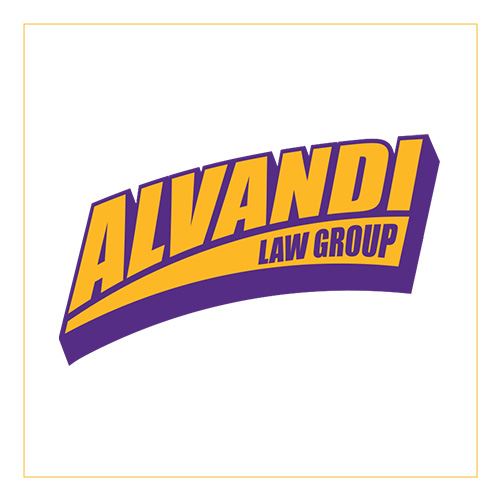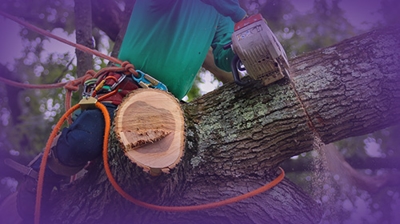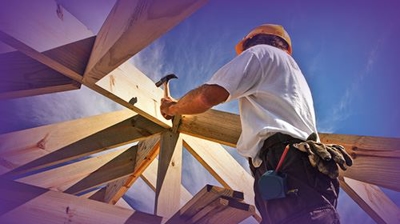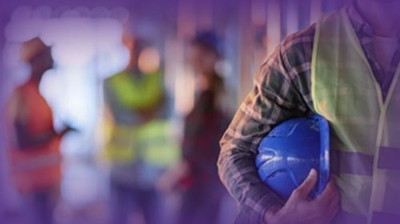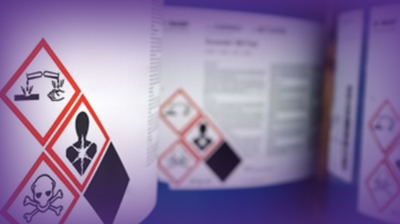
Heavy Machinery Accident Attorneys in Orange County
Securing Benefits for Construction Workers in Southern California
Construction is one of the most dangerous occupations in America, with estimates by the Occupational Safety and Health Administration (OSHA) indicating that one in ten construction workers are injured on the job every year. A vast majority of these injuries stem from the use of dangerous heavy machinery, such as jackhammers, steamrollers, bulldozers, backhoes, drill presses, cranes, forklifts, dump trucks, excavators, and cranes.
In fact, construction accidents in which a worker gets caught in between or struck by heavy machinery are one of the “fatal four” leading causes of death in the construction industry. If you or a loved one has been injured on the job in a machinery accident, our team of Orange County construction accident lawyers at Alvandi Law Group can help you pursue your deserved monetary benefits.
Our firm’s track record of success speaks for itself:
- More than a billion dollars recovered in verdicts and settlements
- Serving injured California workers for more than 20 years
- Lifetime members of the Multi-Million Dollar Advocates Forum®
- 100% dedication to handling workers’ comp cases
If we don't win, you don't pay – call (800) 980-6905 today. Se Habla Español.
What Benefits Can I Receive?
Under California State Law, all employers are required to purchase workers’ compensation insurance to reimburse workers for their losses in the event that they become injured or ill as a result of their occupation. If you have been injured in a machinery accident, workers’ compensation will cover your medical bills, prescription drug costs, rehabilitation expenses, and up to 70% of your lost wages. Should a machinery accident cost a worker their life, workers’ compensation will also pay death benefits to their family.
Workers’ comp will cover the following types of machinery-related injuries:
- Spinal cord damage
- Electrical shocks
- De-gloving injuries
- Crushing injuries
- Broken bones
- Brain injuries
- Burns
- Amputations
Common Types of Construction Machinery
Construction sites utilize a wide range of machinery and equipment to facilitate various tasks efficiently. Here are some common types of machinery used in construction sites:
- Excavators
- Bulldozers
- Loaders
- Cranes
- Dump Trucks
- Concrete Mixers
- Compactors
- Pumps
- Power Tools
Common Types of Heavy Machinery Accidents
A heavy machinery accident refers to any incident involving large, powerful equipment used in construction, manufacturing, mining, agriculture, or other industries, resulting in injuries, fatalities, property damage, or environmental harm. These accidents can occur due to various factors, including human error, equipment malfunction, inadequate training, poor maintenance, and unsafe working conditions.
Common types of heavy machinery accidents include:
- Overturns and Rollovers: This occurs when a heavy machine such as a crane, bulldozer, or excavator tips over onto its side or rolls over completely. It can happen due to uneven terrain, overloading, improper operation, or mechanical failure.
- Caught-In or Caught-Between Accidents: These accidents involve workers getting caught, pinched, or crushed between moving parts of heavy machinery or between the machinery and a stationary object. Examples include getting trapped in conveyor belts, caught between gears, or crushed by collapsing equipment.
- Struck-By Accidents: Struck-by accidents occur when workers are struck by moving parts, flying debris, or materials ejected from heavy machinery. This can happen during loading and unloading operations, material handling, or when equipment malfunctions.
- Falls from Heights: Workers operating heavy machinery at elevated heights, such as cranes, aerial lifts, or scaffolding, are at risk of falling. Falls from heights can result in serious injuries or fatalities if proper fall protection measures are not in place.
- Electrocutions: Heavy machinery operators working near power lines or electrical equipment are at risk of electrocution if they come into contact with live wires or faulty electrical systems. Electrocutions can occur due to equipment malfunction, improper grounding, or failure to follow safety protocols.
- Entanglements: Entanglement accidents happen when workers' clothing, limbs, or body parts become caught in moving machinery parts such as conveyor belts, gears, or rotating shafts. This can lead to severe injuries, amputations, or fatalities if the machinery is not promptly shut down.
- Collapse of Structures or Trenches: Construction workers are at risk of being trapped or crushed by the collapse of structures, walls, or trenches during demolition, excavation, or construction activities. Proper shoring, bracing, and trench safety measures are essential to prevent such accidents.
- Explosions and Fires: Heavy machinery accidents involving explosions or fires can occur due to fuel leaks, electrical faults, overheating, or combustible materials coming into contact with hot surfaces. These accidents pose significant risks to workers' safety and can cause extensive damage to equipment and property.
- Transportation Accidents: Accidents involving the transportation of heavy machinery, such as collisions with other vehicles, rollovers during loading or unloading, or accidents during transportation on public roads, can result in injuries, fatalities, and damage to equipment.
- Equipment Failures and Malfunctions: Mechanical failures, defects, or malfunctions in heavy machinery components such as brakes, hydraulics, steering systems, or structural integrity can lead to accidents if not detected and addressed promptly through regular maintenance and inspections.
Common Causes of Heavy Machinery Accidents
Heavy machinery accidents can occur due to various factors, and understanding these causes is crucial for preventing such incidents and ensuring the safety of workers. Here are some common causes of heavy machinery accidents:
- Operator Error: One of the leading causes of heavy machinery accidents is operator error. This includes mistakes such as improper operation of the equipment, failure to follow safety procedures, lack of training or experience, distraction, fatigue, and impairment due to drugs or alcohol.
- Lack of Training and Experience: Inadequate training and lack of experience can significantly increase the risk of accidents. Operators must receive proper training on the safe operation of specific machinery, including understanding controls, safety features, maintenance procedures, and hazard recognition.
- Poor Maintenance and Inspection: Failure to properly maintain and inspect heavy machinery can lead to mechanical failures, malfunctions, and breakdowns, increasing the risk of accidents. Regular inspections, servicing, and repairs are essential to ensure that equipment operates safely and efficiently.
- Unsafe Working Conditions: Working in unsafe environments such as poorly maintained work areas, uneven terrain, congested spaces, or areas with inadequate lighting increases the likelihood of accidents. Employers must address safety hazards and implement measures to mitigate risks in the workplace.
- Overloading and Improper Use: Operating heavy machinery beyond its designed capacity or using it for tasks it was not intended for can lead to equipment failure, structural damage, and accidents. Operators should adhere to load limits and use machinery according to manufacturer specifications.
- Lack of Communication: Inadequate communication between workers, supervisors, and equipment operators can result in misunderstandings, coordination errors, and accidents. Clear communication protocols and signals are essential, especially in situations involving multiple workers and machinery.
- Fatigue and Stress: Fatigue, stress, and mental exhaustion can impair an operator's judgment, reaction time, and concentration, increasing the risk of accidents. Employers should implement fatigue management strategies, provide adequate rest breaks, and promote a healthy work-life balance.
- Environmental Factors: Adverse weather conditions such as rain, snow, ice, high winds, or extreme temperatures can affect the safe operation of heavy machinery. Operators should assess environmental conditions and adjust their work practices accordingly to minimize risks.
- Improper Loading and Securing: Improper loading, securing, or transportation of heavy machinery and materials can lead to accidents such as overturns, rollovers, or falls during transport. Proper loading techniques, securing methods, and adherence to transportation regulations are essential for safety.
- Inadequate Personal Protective Equipment (PPE): Failure to wear appropriate personal protective equipment such as helmets, gloves, safety glasses, and high-visibility clothing increases the risk of injuries in the event of accidents. Employers must ensure that workers have access to and use the necessary PPE.
- Equipment Malfunctions and Defects: Mechanical failures, defects, or malfunctions in heavy machinery components such as brakes, hydraulics, steering systems, or structural integrity can lead to accidents. Regular equipment inspections, maintenance, and prompt repair of issues are essential to prevent accidents.
- Lack of Emergency Preparedness: Failure to have adequate emergency response plans, procedures, and training in place can exacerbate the consequences of accidents. Employers should provide training on emergency protocols, evacuation procedures, and first aid to ensure swift and effective responses to accidents or incidents.

See Our Success Stories
-
 $5,400,000 Tree Trimming Accident
$5,400,000 Tree Trimming AccidentSecured $5,400,000 for a client injured following a tree trimming accident.
-
 $4,400,000 Construction Site Accident
$4,400,000 Construction Site AccidentAchieved $4,400,000 for a client harmed in a construction site incident.
-
 $1,500,000 Construction Site Accident
$1,500,000 Construction Site AccidentWon $1,500,000 for a client involved in a worksite accident.
-
 $850,000 Roofing Injury
$850,000 Roofing InjuryObtained $850,000 for a client involved in a roofing injury case.
-
 $700,000 Office Work Injury
$700,000 Office Work InjuryObtained $700,000 compensation for a client who suffered an office-related injury.
-
 $700,000 Chemical Exposure
$700,000 Chemical Exposure
Compassionate & Steadfast Legal Support
At Alvandi Law Group, our workers’ compensation lawyers have seen time and time again the immense burden a sudden workplace injury can place on a person and their family.
Protecting your wellbeing is of utmost importance, and we are prepared to do everything within our power to make sure you gain access to the financial resources you need to get on the road to recovery. From preparing and filing your claim to negotiating any disputes that should arise surrounding your claim, our attorneys are willing to carry the legal weight on your behalf.
Injured? Schedule a no-cost case review with a practiced Orange County construction accident attorney to get started filing a claim.

